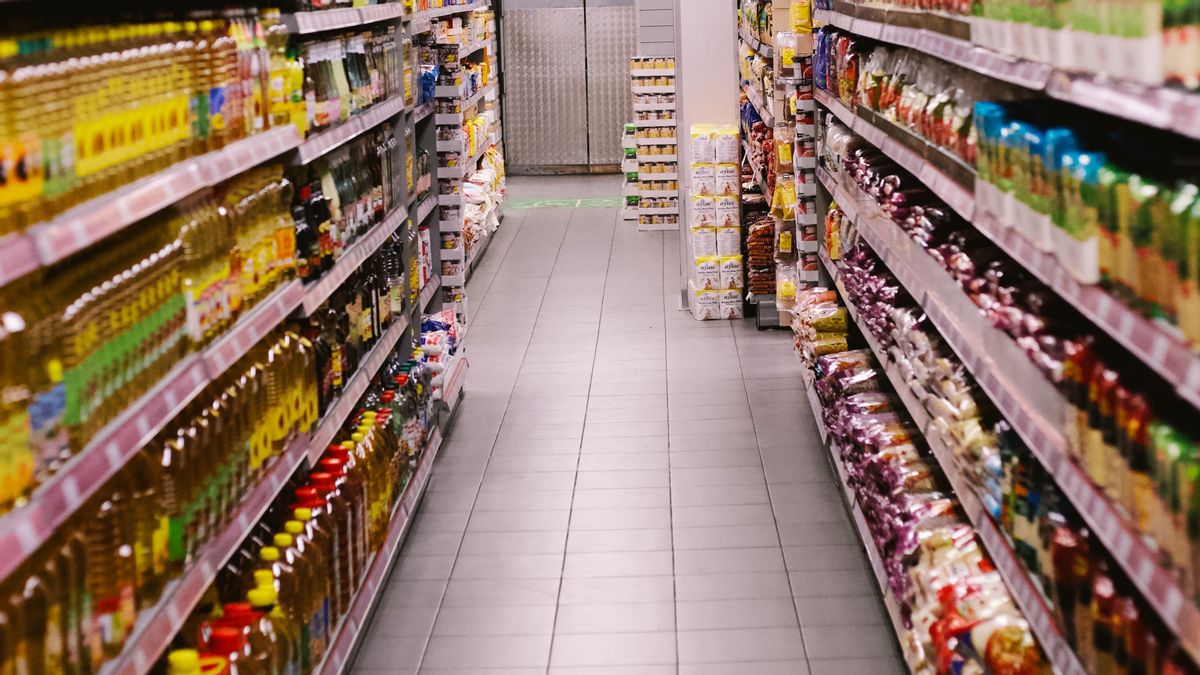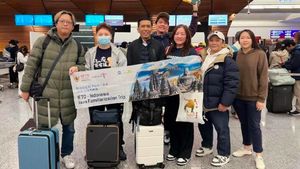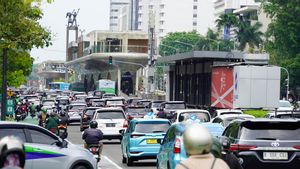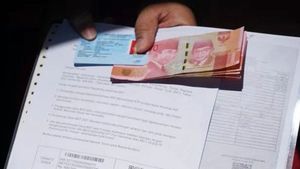JAKARTA - The impact of the COVID-19 outbreak is not only on people's fears and concerns over its spread. This is because the virus has resulted in the response of the people who buy various basic necessities in excess or panic buying.
The police took concrete steps by cooperating with merchant associations throughout Indonesia to limit the purchase of a number of staple goods for this panic buying. Based on the appeal letter number B / 1872 / III / Res.2.1 / 2020 / Bareskrim, there are four basic ingredients that are restricted from being purchased.
Dirtipideksus Bareskrim Polri, Brigadier General Daniel Monang Silitonga, said that the limited purchase of staples, namely, a maximum of ten kilograms of rice, a maximum of two kilograms of sugar, four liters of cooking oil, and two boxes of instant noodles at most.
The purchase restriction also aims to ensure the availability of basic commodities on the market and prevent the prices of people's needs from rising.
"In principle, the National Police, in this case the Food Task Force, will maintain and control the availability of basic necessities for the community," Daniel told VOI, Thursday, March 19.
By cooperating with a merchant association, monitoring of the availability of staples can be carried out in a straightforward manner. However, considering that the Idul Fitri holiday will soon arrive, it is predicted that the prices of several types of staples will continue to rise. However, it did not rebound significantly or was still within reasonable limits.
"(Prices) have risen slightly, perhaps tolerated, but under control. We, with traders and the market, have daily communication," said Daniel.
In addition, in controlling availability and prices, the National Police also supervised the distribution of staple goods from outside Java. Thus, preventing parties from trying to play.
In fact, strict sanctions will be given or threaten those who are reckless to hoard basic commodities just for profit.
"Regarding the hoarding of goods or people's needs, we will take firm action," said Daniel.
In addition, the Advisory Board of the Indonesian Shopping Center Retailers and Renters Association (HIPPINDO) Tutum Rahanta said that the supervision carried out by the Police had a good impact on traders. Because, it can reduce suspicion or misunderstanding with consumers.
Since the spread of COVID-19, traders often argue with consumers who buy up basic commodities without leaving them for others. Thus, they are blamed when there are consumers who do not get basic commodities.
"I think it is very good, so that people understand to share with fellow consumers and we as business actors also do not need to have a different understanding with buyers," said Tutum.
Tutum does not see that this restriction on the purchase of basic commodities leads to a lockdown. He added that the stock of staple goods is still in a safe level, except for sugar, which has been in minimal supply since early 2020.
"There is no direct connection with the lockdown. So far, basic commodities are very sufficient, except for empty sugar. The cause is due to insufficient supply," said Tutum.
The English, Chinese, Japanese, Arabic, and French versions are automatically generated by the AI. So there may still be inaccuracies in translating, please always see Indonesian as our main language. (system supported by DigitalSiber.id)













